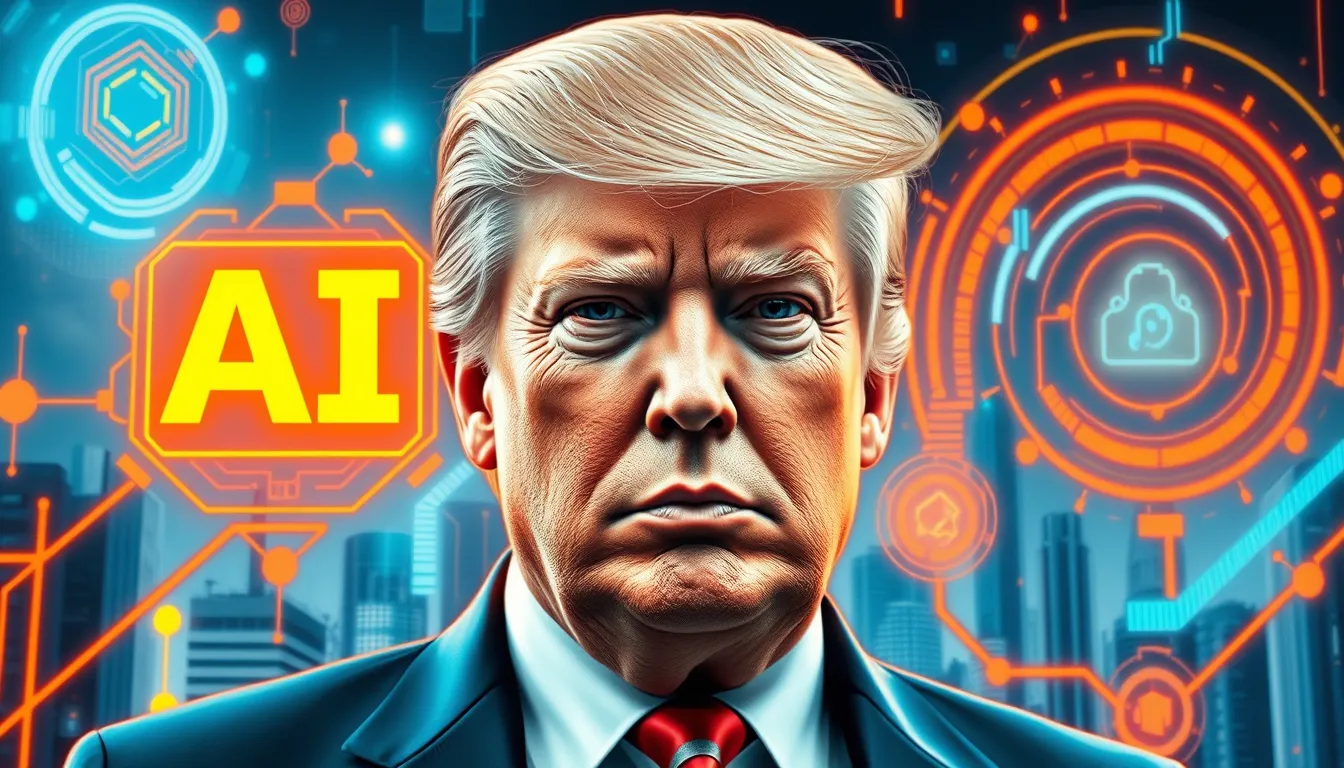Now Reading: Trump AI Regulation: Balancing Innovation and Accountability
-
01
Trump AI Regulation: Balancing Innovation and Accountability
Trump AI Regulation: Balancing Innovation and Accountability

Trump AI Regulation: Balancing Innovation and Accountability
In a climate charged with rapid technological change and evolving political narratives, the discussion around Trump AI regulation has taken center stage. Former President Donald Trump’s recent remark, where he suggested that artificial intelligence might one day shoulder the blame for future missteps, has ignited debates not only about technological innovation but also about accountability in governance. This article delves into the multifaceted dimensions of Trump AI regulation, unraveling the intricate interplay between political rhetoric, technological progress, and the ever-growing need for clear AI accountability frameworks.
The Emergence of AI in Political Discourse
Political rhetoric in the modern era often intersects with technological innovation. Trump’s statement that he would point to AI if anything were to go wrong has resonated with many, highlighting the growing prominence of AI in public debates. His controversial comment—Trump blames artificial intelligence for future mistakes
—has become a defining moment in discussions about responsibility and regulation in AI advancement. The idea of using AI as a scapegoat in political rhetoric not only underscores uncertainties surrounding the technology but also challenges existing frameworks for tech criticism and digital progress.
A Deeper Look into Artificial Intelligence Regulation
Artificial intelligence regulation has become an urgent conversation topic in government circles and industry alike. The rapid advancements in AI technology have created a tension between fostering innovation and instituting safeguards to ensure accountability in technology. Here are some key points to consider:
- The balance between encouraging technological innovation and protecting public interests is delicate.
- Too stringent regulation could stifle digital progress, while too lax an approach might lead to ethical dilemmas and accountability issues.
- Emerging voices in policy debates advocate for transparent rules that address how AI is tested, deployed, and monitored.
Given these challenges, experts argue that robust frameworks are necessary to guide the evolution of AI. This aligns with growing concerns around privacy, job security, and ethical oversight, all of which form the bedrock of discussions on Trump AI regulation.
Political Rhetoric, Tech Criticism, and the Role of Accountability
Political leaders often use strong, sometimes humorous comments to drive home policy messages. Trump, known for his distinctive style, has capitalized on the zeitgeist of digital transformation. His statement, viewed by some as a tongue-in-cheek critique of current accountability systems, has sparked widespread debate. Critics, however, perceive the comment as a deflection—a means to avoid scrutiny over past decisions. This dual perception is reflective of the underlying tension in political rhetoric and technological innovation.
The debate surrounding Trump AI regulation is an emblematic example of how political narratives can influence public opinion on complex technological subjects. In an era of rapid digital progress, the need for accountability in technology becomes even more pronounced. Discussions have emerged around how responsibility should be assigned in scenarios where AI plays a pivotal role. The long-tail concern of “how Trump links AI to accountability in governance” further illustrates the broader societal implications of attributing blame in an increasingly automated world.
Practical Implications of Regulating AI
Implementing effective regulation in the field of AI is not merely about setting rules—it is about ensuring that innovation does not come at the cost of societal values. Several practical implications arise from the ongoing debates:
- Policy Development: Legislators are challenged with balancing incentives for innovation against the need for ethical oversight. Finding this balance is crucial for harnessing the benefits of AI while mitigating its risks.
- Corporate Accountability: Companies at the forefront of AI research are under increasing pressure to adopt transparent practices. Internal oversight mechanisms and external audits are becoming standard in addressing issues of AI accountability.
- Public Trust: For technological innovation to flourish, public trust must be established. Transparent regulatory practices and clear accountability structures are essential to achieving this trust. For further insights on political and technological trends, resources such as BBC and CNN provide valuable context.
Navigating the Future of AI and Governance
With debates intensifying over every facet of AI—from technical innovation to ethical concerns—Trump AI regulation serves as a critical lens through which these broader issues are examined. As artificial intelligence continues to evolve, so too does the conversation about its role in society. Responsible AI regulation could lead to significant advances in ensuring that technological progress is both innovative and accountable. This view champions the idea that while AI can be a powerful enabler, it must be managed with the same rigor applied to human-led decision-making.
The narrative around Trump AI regulation is painting a picture of a future where technological innovation and accountability walk hand in hand. It is a delicate balancing act that requires insights not only from policymakers but also from industry experts and the wider public. The conversation extends beyond partisan lines, touching on deep-seated issues of ethics, responsibility, and the future of digital progress.
Conclusion
In conclusion, the evolving debate on Trump AI regulation encapsulates many of the critical challenges posed by today’s technological landscape. It invites us to reflect on how we assign responsibility in an era dominated by AI, and how political rhetoric can shape our perceptions of accountability in technology. As society navigates this complex terrain, it is essential to foster transparent discussions and develop regulations that ensure innovation does not outpace our ability to manage its risks. Whether seen as a humorous aside or a prescient warning, Trump’s remarks have undeniably set the stage for conversations that are likely to influence both policy and public opinion for years to come.
By embracing a balanced approach to regulation, we can strive to harness the benefits of AI while safeguarding the values that underpin our social and political structures. The journey ahead is one of both challenge and promise—a testament to the transformative power of technology when paired with thoughtful governance.

























